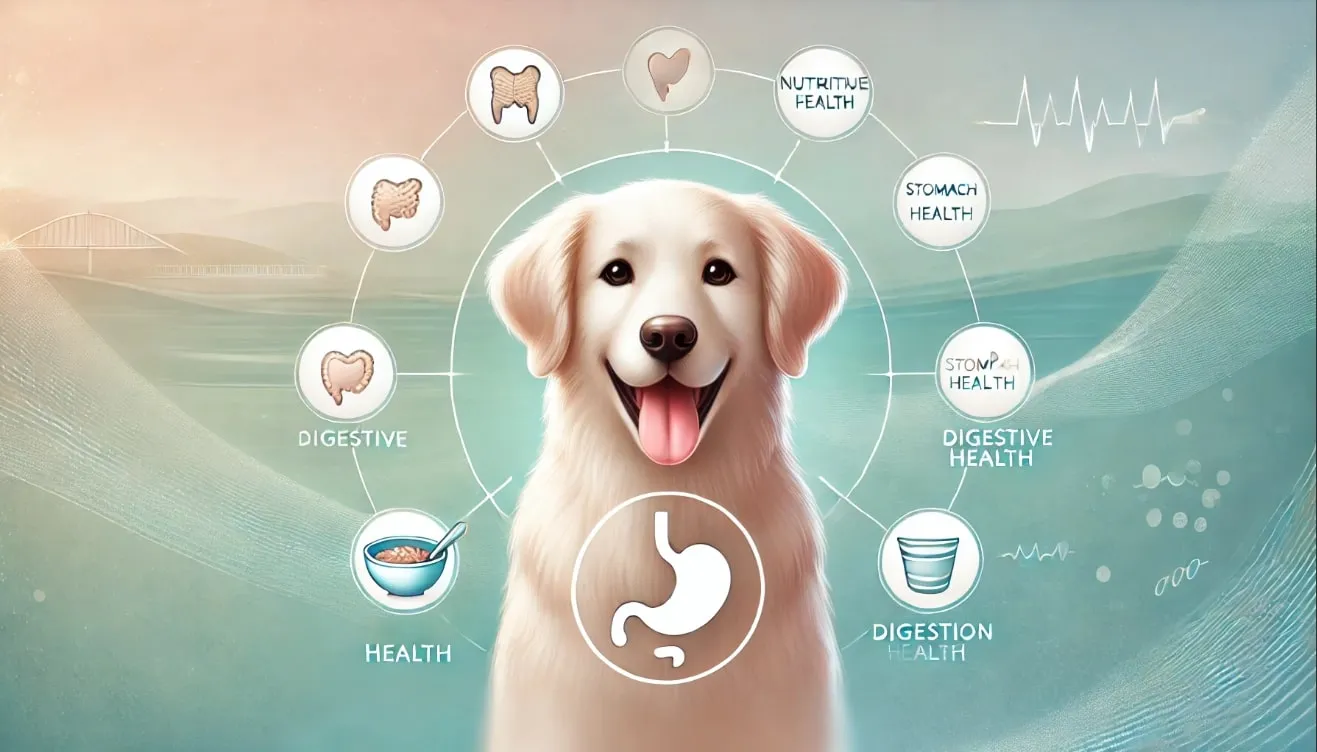Digestive Issues

Digestive issues are common in dogs and can range from mild discomfort to serious health problems. This section provides an overview of common digestive issues, their symptoms, causes, and management strategies.
Common Digestive Issues
Vomiting
Vomiting is a common symptom in dogs and can be caused by various factors, including dietary indiscretion, infections, or underlying health conditions.
Types of Vomit:
- Yellow Vomit: This often indicates that your dog is having acidity. It usually can occur anytime, mostly the reasons can be lack of walk, lack of feeding schedule, Improver food ingredient, feeding frequency, or some infection.
- Management: It requires holistic approach.
- White Vomit: This can be caused by saliva or foam, often indicating an upset stomach or a blockage, like gas or bloating or constipation. It usually can occur anytime, mostly the reasons can be lack of walk, lack of feeding schedule, Improver food ingredient, feeding frequency, or some infection.
- Management: It requires holistic approach.
Diarrhea (Loose Motions)
Diarrhea is characterized by loose, watery stools and can result from dietary changes, infections, or stress.
Management:
- Hydration: Ensure your dog has access to plenty of fresh water to prevent dehydration.
- Diet: Offer a bland diet of boiled chicken and rice until stools return to normal.
- Veterinary Care: Consult your vet if diarrhea persists for more than 24 hours or is accompanied by other symptoms like lethargy or vomiting.
Constipation
Constipation occurs when a dog has difficulty passing stools or does so infrequently. Causes can include dehydration, lack of dietary fiber, or ingestion of foreign objects.
Management:
- Fiber: Increase the amount of fiber in your dog’s diet with foods like pumpkin or specialized dog food.
- Hydration: Ensure your dog drinks plenty of water.
- Exercise: Regular physical activity can help stimulate bowel movements.
- Veterinary Care: If constipation persists, consult your vet for further evaluation and treatment.
Loss of Appetite
Loss of appetite can be a sign of various health issues, including digestive problems, stress, or more serious underlying conditions.
Management:
- Diet Changes: Introduce new foods gradually and ensure they are high-quality and nutritious.
- Environment: Minimize stress and ensure your dog feels safe and comfortable during meals.
- Veterinary Care: If your dog’s appetite does not improve within a few days, seek veterinary advice.
Preventive Measures
- Diet: Feed your dog a balanced, high-quality diet appropriate for their age, size, and health status.
- Hydration: Always provide fresh water to keep your dog hydrated.
- Regular Vet Visits: Regular check-ups can help detect and prevent digestive issues early.
- Avoid Human Food: Many human foods can cause digestive upset in dogs. Stick to dog-safe treats and foods.
When to See a Vet
Consult your veterinarian if your dog exhibits any of the following:
- Persistent vomiting or diarrhea
- Blood in vomit or stools
- Severe lethargy or weakness
- Abdominal pain or bloating
- Loss of appetite lasting more than 24 hours
FAQs
Q: What should I do if my dog has diarrhea? A: Ensure your dog stays hydrated, offer a bland diet, and consult your vet if diarrhea persists for more than 24 hours.
Q: Can I give my dog over-the-counter medication for vomiting? A: Always consult your vet before giving any medication to your dog, as some human medications can be harmful to dogs.
Q: How can I prevent digestive issues in my dog? A: Feed a balanced diet, provide plenty of fresh water, avoid feeding human food, and have regular vet check-ups.
For more information or support, join our Pack Platform to connect with other dog parents and experts.